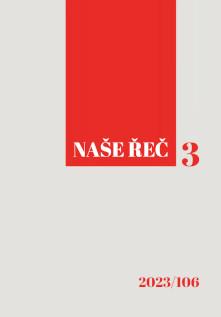Keltové a Germáni i keltové a germáni. O psaní velkých písmen v názvech etnik a umělých myšlenkových konstruktů
Celts and Germans, as well as celts and germans. On the capitalization of the names of ethnic groups and artificial mental constructs
Author(s): Vladimír SalačSubject(s): Archaeology, Ethnohistory, Western Slavic Languages
Published by: AV ČR - Akademie věd České republiky - Ústav pro jazyk český
Keywords: ancient Germans; capitalization; Celts; ethnicity; social construct
Summary/Abstract: Demonyms (words expressing affiliation to an ethnic group, nation, state, city, etc.) need to be capitalized in the Czech language. However, research in various disciplines in recent decades has shown that some names that have been clearly understood as designations of the affiliation to a nation or an ethnic group do not correspond to the current understanding of these terms. Such designations include the words Keltové (Celts) and Germáni (ancient Germans), which in fact represent constructs artificially created by ancient Greek and Roman authors to denote large groups of barbarians regardless of what these barbarians called themselves, how they identified themselves, what languages they spoke, etc. If we regard the Celts or the ancient Germans as artificial constructs rather than ethnic groups, however, they need to be written with small initial letters according to the rules of the Czech orthography – keltové and germáni.
Journal: Naše řeč
- Issue Year: 106/2023
- Issue No: 3
- Page Range: 185-191
- Page Count: 7
- Language: Czech

